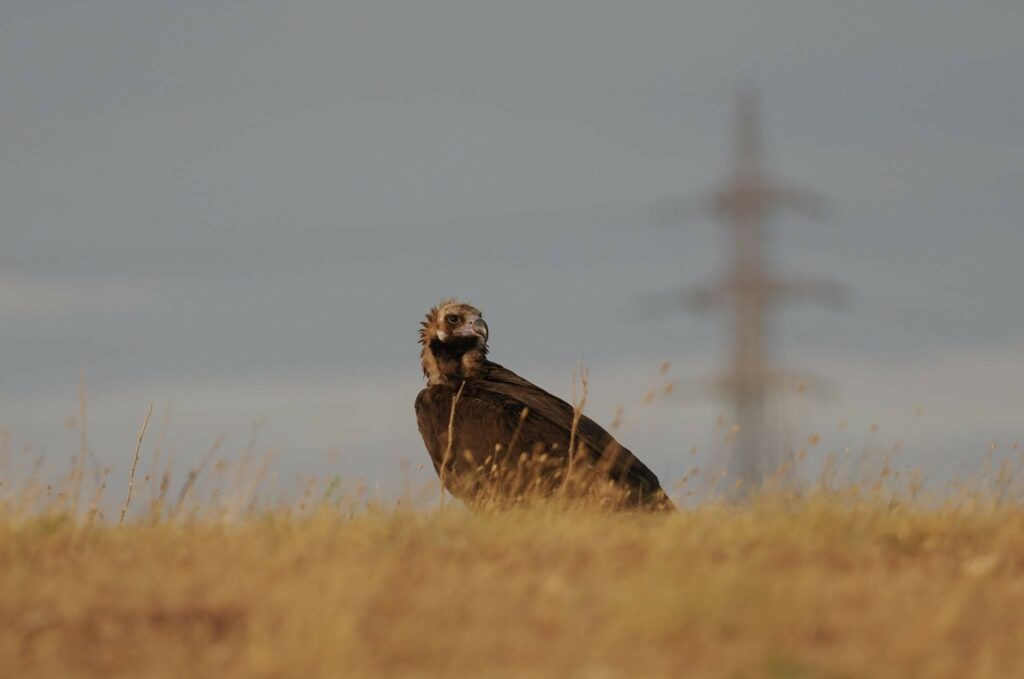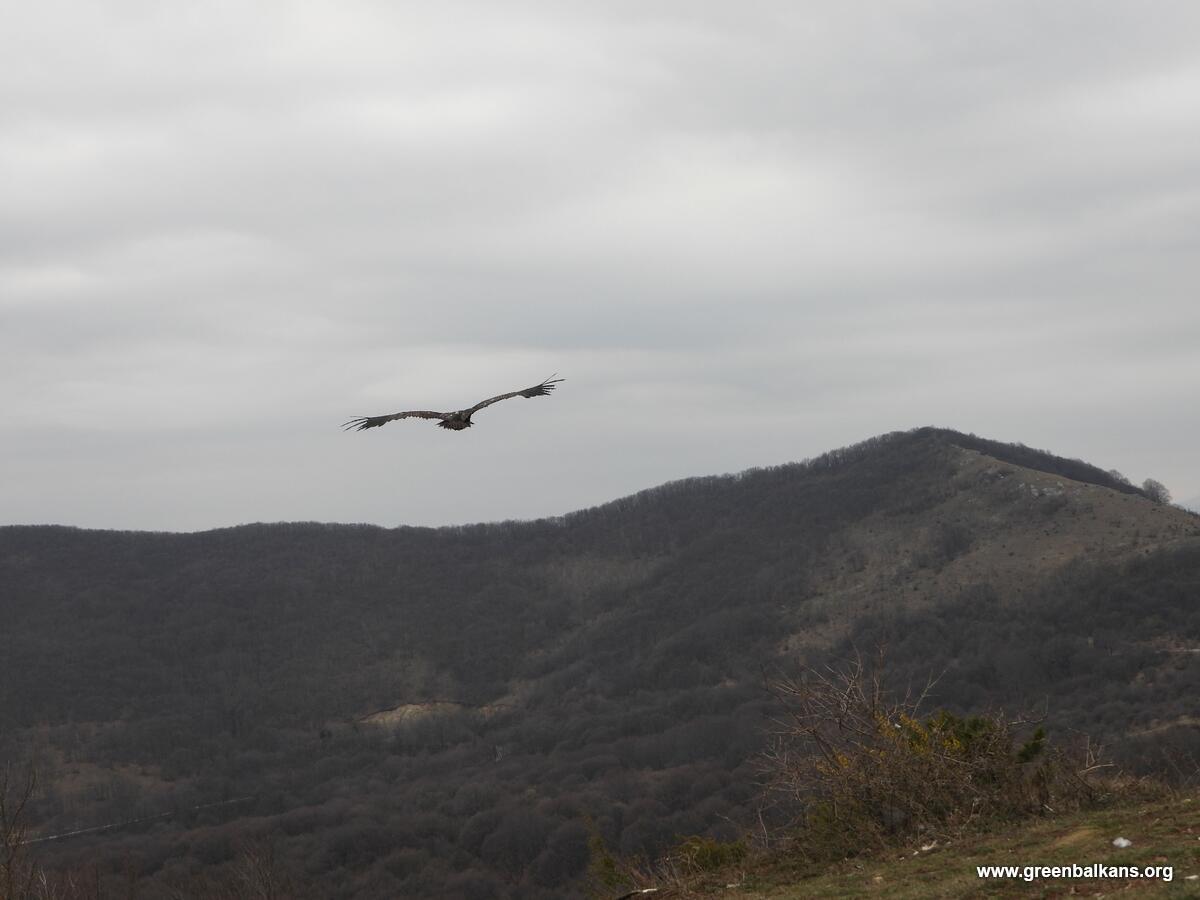Only three years after recolonising southern Portugal, and more than 40 years after the species disappeared as a breeding species from the region, 1 large black vulture chick (now three months old) is about to fledge from its nest in artificial platforms set up for them in Alentejo by Liga para a Protecção da Natureza (LPN), a Portuguese conservation organisation.
Black vultures nest in nearby Extremadura and Andalucía in Spain – where their populations have been increasing to reach maximums in recent years – and they forage extensively across southern Portugal, but this recolonization is nonetheless remarkable as this species is extremely faithful to existing colonies, and takes a lot of time to establish new colonies elsewhere.
The species became extinct as breeding species in Portugal in the 1970s, mostly due to the use of poisoned carcasses targeting unwanted predators. An increasing population in Spain saw the species first return to breed in central Portugal (Tejo Internacional) in 2010 (where now there is a small colony of about 10 pairs), and then in north-eastern Portugal (one single pair). Now they are also breeding in southern Portugal, in Herdade da Contenda, a large estate owned and managed by the Moura Municipality – in the last 3 years one chick has fledged successfully there. This year 3-4 pairs started to breed, one of them in a natural nest, the others in platforms that had been installed a few years ago. Two of these pairs laid an egg, which hatched, but one of the young died – the other one, a female as confirmed by blood analysis, is set to fledge though, ands was recently ringed with a color ring (red ring with code 7M) by staff from the ICNF, the Portuguese government conservation agency.
This is a great reward to the efforts of LPN, who completed a project – funded by the EU LIFE fund – on vultures in the region two years ago, including the construction of nest platforms for black vulture in suitable habitat. The VCF has visited the project and discussed with LPN´s managers several issues regarding vulture conservation in the region.
But it is not all good news for vultures in Iberia. The introduction of veterinary diclofenac – an anti-inflammatory painkiller used to treat livestock – in nearby Spain is a major emerging concern – and the Portuguese authorities are now considering allowing it in the country too! This drug is fatal to vultures that feed on contaminated carcasses, and is thought to be responsible for the catastrophic decline of vultures in Southeast Asia (over 90% in just 20 years). To date, no vulture deaths have been traced to the drug in Europe, but the risk is there. The VCF is working actively with many partners to try to ban the drug from Europe – see here.
Photos: LPN





